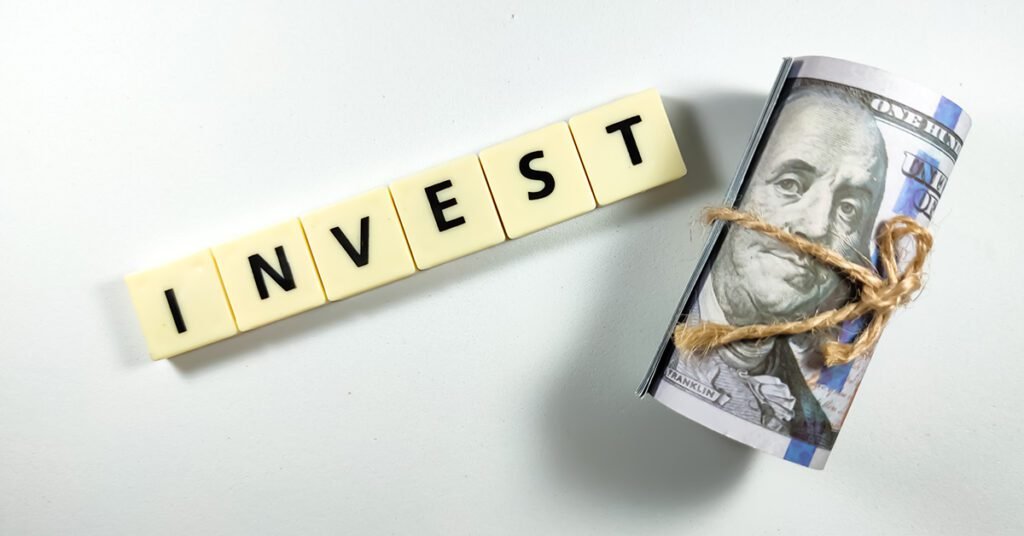Life has a funny way of throwing curveballs at us, doesn’t it? One minute you’re planning a weekend hike, and the next, you’re figuring out how to manage finances with a long-term disability or chronic illness. It’s like preparing for a zombie apocalypse—except it’s very real, and instead of zombies, it’s paperwork and budget sheets chasing you!
Embrace the New Normal with a Smile (and a Spreadsheet)
Welcome to your new normal! Think of it as rebooting your life’s operating system. It’s time to hit the refresh button on your finances, and while we’re at it, why not add a bit of flair? Yes, we’re talking about bringing out the good ol’ spreadsheet – your new best friend.
Here’s How to Get Started:
Meet Your New Pal, Mr. Spreadsheet
First off, introduce yourself to a spreadsheet. No, it won’t bite; it’s just a grid where money can’t hide. This is where you get to play detective with your own cash. Track what comes in, what goes out, and maybe why you bought that funky hat last week. Whether it’s Excel, Google Sheets, or a napkin with columns drawn on it—whatever works!
Income: Roll Call!
List all your sources of income. This could be anything from a disability benefit to that side hustle selling knitted scarves. If it’s money and it’s coming to you, it deserves a spot on the spreadsheet. Give each source a name, and no, they don’t all have to be serious. ‘Mystery Money’ and ‘Odd Jobs’ can have their own lines too!
Expenses: Time for a Treasure Hunt
Now for the hunt—tracking down every expense. Some are obvious, like rent and food. Others might be sneaky, like those app subscriptions you forgot about but are still paying for. Record them all. It’s like a scavenger hunt, except you’re not looking for old coins in the couch but rather where all those coins are going!
The Fun Part: Finding Hidden Treasures
This is where you might find money you didn’t know you had. Maybe there’s a gym membership you haven’t used since last year. Or perhaps you’ve been subscribing to a llama grooming magazine despite not owning a llama. Cut those out, and voilà, you’ve just ‘found’ more money.
Color Code Your Life
Add some color to that spreadsheet. Make it a rainbow of finances. Green for income because it’s go-time for money coming in. Red for urgent expenses like bills (because they’re important, like stop signs). Yellow for savings, like a gentle reminder to slow down and save up.
Set Goals, Even Silly Ones
Set some goals. Maybe by next month, you’ll have saved enough for that superhero cape or a new blender. Having goals makes the numbers game more fun and gives you something to cheer for. Imagine your savings as the score in a video game—high scores mean you’re winning at money management.
Celebrate the Small Wins
Every time you manage to save a bit or cut down an expense, celebrate. Throw a mini-party with confetti (biodegradable, of course) or treat yourself to a fancy coffee. Small wins keep you motivated, and before you know it, managing finances becomes not just necessary, but a bit of fun.
In a nutshell: Embracing your financial life post-change doesn’t have to be a gloomy affair. With a bit of creativity, some color coding, and a trusty spreadsheet, you can turn this into an adventure. It’s about making peace with where you are, dancing to a new rhythm, and maybe laughing at the absurdity of it all. Because if you can find humor in the numbers, you’re already winning!
1. Get Intimate with Your Income
When life gives you a new challenge like a long-term disability or chronic illness, getting intimate with your income doesn’t mean candlelit dinners and long walks on the beach with your paycheck. It means really getting to know what’s coming into your bank account, even if it’s more of a trickle than a waterfall right now!

Let’s Break It Down:
Greet Every Dollar at the Door
Imagine each dollar that comes into your account is like a guest at a party. You want to greet each one at the door, give it a nametag, and maybe even a little hat (because why not?). Knowing exactly how much money you have coming in from all sources—regular earnings, disability benefits, side gigs—is crucial. It’s like taking attendance: “Hello, Mr. Salary! How are you today, Mrs. eBay Sales?”
Understanding Your Income Sources
Your income might look different now. It could be a mix of:
- Disability Benefits: This might be new to you. It’s like getting a gift card for a store you never thought you’d shop in, but here you are! Make sure you understand how much you get and when it arrives.
- Part-Time Work: Maybe you’re still working, but less. It’s like your job turned into a cameo appearance instead of a leading role.
- Passive Income: This could be from investments or renting out property. It’s the couch potato of income sources—it does its thing while you relax.
- Random Acts of Money: These might be less predictable, like selling stuff online or a freelance gig. It’s like finding money in your coat pocket—always a pleasant surprise!
Track It Like a Hawk
Now that you’ve welcomed all your money guests, keep an eye on them. Use a simple tool or app to track your income. Every dollar should be accounted for, just like you’d keep a score in a video game. If you’re more old-school, a notebook works just fine too (bonus points for glitter pens).
Adjust Your Expectations
Your income might not be what it used to be, and that’s okay. It’s like rooting for a sports team that’s in a rebuilding year. They might not win the championship this season, but they’re getting ready for future victories. Set realistic expectations and give yourself a pat on the back for managing what you have.
Have Fun With It
Yes, money is serious business, but who says you can’t have a bit of fun? Give funny names to your income sources or imagine your dollars doing a little dance every time they hit your account. It might not add extra zeros to your balance, but it’ll surely add a smile to your face.
Why This Matters
Getting intimate with your income means you’re taking control of your finances, not letting them control you. It’s about making the best out of what you have and not losing sight of the lighter side of life. So, throw a little welcome party for every dollar, track them like a detective, and remember, every penny you manage well is a tiny victory in the grand scheme of things.
2. Slash Those Expenses Like a Budget Ninja
Alright, budget warriors, it’s time to sharpen your financial shurikens and slash those expenses like a ninja in a money dojo. Managing your cash flow with a chronic illness or disability might mean you’re working with less, so let’s make every dollar scream for mercy before you let it escape into the wild.

Ready? Here’s How to Slice and Dice:
Identify the Targets: Know Your Expenses
First, you need to know who the enemy is—and by enemy, I mean every expense that’s sneaking around, thinking it can get past you. It’s time for a roll call. List every single thing you spend money on. Rent, food, utilities, that strange subscription to “Jelly of the Month Club”—everything.
Separate the Essentials from the Kung-Fu Imposters
Once you have your list, it’s time to separate the ninjas from the wannabes. Essentials are your ninjas; they’re vital, like rent, utilities, and insurance. The wannabes? They’re things like fancy coffee every morning, a gym membership you don’t use because you have a set of free weights at home, or that cable package with 500 channels when you only watch five.
Deploy the Ninja Stars: Cut Ruthlessly
Now, get ruthless. Slash those non-essentials like a budget ninja on a mission. Do you really need to order takeout when you’ve got a kitchen full of groceries? Could you swap your gym membership for free YouTube workout videos? Every cut adds up, making your money last longer.
Use the Art of Substitution
Ninjas are masters of disguise, and so are savvy budgeters. Find cheaper alternatives for the things you love. Love reading? Swap buying books for a library membership. Adore movies? A streaming service could replace those expensive cinema trips.
Automate to Eliminate Temptation
Use technology to your advantage. Set up automatic transfers to your savings account so you don’t even see the money you’re saving—out of sight, out of mind. It’s like having a financial sidekick that’s always looking out for you.
Monitor and Adjust: Keep Your Eyes on the Prize
Just like a ninja adjusts tactics based on the enemy’s moves, you need to regularly check your budget and adjust. Maybe you find you’ve been too harsh on your coffee budget and life is miserable without it. It’s okay to adjust and allow yourself that small pleasure—as long as it doesn’t throw off your entire game plan.
Celebrate Your Victories
Every time you successfully slash an expense, celebrate (modestly). Maybe do a little ninja dance or treat yourself to a victory lap around the living room. Small victories keep you motivated and make budgeting feel less like a chore and more like a game.
Why Go Full Ninja on Your Budget?
Becoming a budget ninja helps you keep more of your money during tough times. It’s not just about cutting costs—it’s about smartly managing your resources so you can live comfortably and maybe even have a little fun along the way. Remember, every dollar you don’t spend is another dollar you can use for something important—like saving for a ninja suit (or, you know, an emergency fund).
3. Emergency Fund: Your Financial Life Raft
Imagine you’re sailing the unpredictable seas of life, and suddenly, a wild storm named “Unexpected Expense” blows in. What’s your plan? That’s right, you’ll want your trusty financial life raft by your side—also known as the Emergency Fund. It’s the superhero cape in your closet that you hope to never use but are super glad to have when trouble strikes.

Building Your Financial Life Raft: Here’s How to Do It
Start Small but Dream Big
Building an emergency fund can feel like trying to fill a swimming pool with a teaspoon. It’s slow going at first, but every little bit adds up. Start with a small, manageable goal. Think $100. Once you hit that, aim for $500, then $1,000. Before you know it, you’ll have enough to cover a month’s expenses, then three, then six. Your teaspoon just became a bucket!
Find Your Floaties: Where to Stash the Cash
You need a safe spot for your emergency fund where it won’t get mixed up with your ice cream money. A high-interest savings account works great. It’s like giving your money a comfy bed to sleep in—safe and sound, and it might even grow a bit while it’s resting.
Make it a Habit
The best way to build your fund is to make saving automatic. Set up a direct deposit from your main account to your emergency fund right after payday. Think of it as setting a trap for future surprises. You won’t feel the pinch, and your future self will high-five you for being so clever.
Keep It Sacred
Your emergency fund is for emergencies only—not for that shiny new gadget or a spontaneous weekend getaway. It’s like the glass case that says “break in case of emergency.” Only break that glass when it’s a real emergency, like a car repair, medical bill, or unexpected job loss. No cheating!
Regular Check-ups
Treat your emergency fund like a house plant. Check on it regularly, make sure it’s growing, and prune it if necessary. Adjust your contributions as your financial situation changes. Got a raise? Maybe bump up the amount you’re saving. Every little bit helps it grow stronger and more resilient.
Celebrate Milestones
Saving for emergencies might not be the most thrilling adventure, but celebrate the milestones. When you hit your first $1,000, do something small but fun to celebrate. Maybe a movie night at home with popcorn. It’s a way to recognize your hard work without dipping into the fund itself.
Why You Absolutely Need an Emergency Fund
Think of your emergency fund as your financial life jacket. It keeps you afloat when the waters get rough, and ensures you don’t drown in debt. Life throws some wild pitches—medical issues, sudden repairs, job changes—and without your emergency fund, each pitch could be a strikeout.
Building this fund isn’t just a financial task; it’s a crucial step in stress-proofing your life. It’s your peace of mind, tucked away in a bank account, ready to support you when you need it most. So, paddle on, brave sailor, with your emergency fund securely in tow. The seas might get choppy, but with your financial life raft, you’ll always be ready to weather the storm.
4. Insurance: Boring but a Lifesaver
Let’s face it, talking about insurance is about as exciting as watching paint dry—but just like that wall needs a fresh coat to keep from looking shabby, your life needs a good insurance policy to keep from financial ruin when things go sideways. It’s the broccoli of your financial diet: not the most thrilling on the plate, but packed with nutrients that keep you healthy (financially speaking).

Why Insurance Might Just Be Your New Best Friend
Health Insurance: Your Frontline Defender
Health insurance is the quarterback of your medical defense. It steps into the game when you’re hit with medical bills that could otherwise wipe out your savings faster than a kid eats a cupcake. Whether it’s a routine check-up or a more serious medical procedure, health insurance helps keep your bank account from catching a cold.
Disability Insurance: The Unsung Hero
If you’re facing a long-term disability, this type of insurance is like having a sturdy umbrella in a downpour. It ensures that money keeps coming in even if you can’t work. Think of disability insurance as your financial understudy, taking the stage when you’re unable to perform.
Critical Illness Insurance: The Safety Net
This one’s a bit like a parachute. You hope you never have to pull the cord, but boy, are you glad to have it if you’re free-falling! If you get hit with a serious illness like cancer or a heart attack, critical illness insurance gives you a lump sum that you can use for anything—medical costs, daily expenses, or even a dream vacation after a successful recovery.
Life Insurance: For Peace of Mind
Life insurance is like leaving behind a treasure chest for your family or loved ones. It’s not something you’ll ever use yourself, but it’s a final act of kindness, ensuring those you care about are financially secure if you’re no longer around to help.
How to Shop for Insurance Without Losing Your Mind
Understand What You Need
Before you dive into the ocean of insurance options, know what you need. It’s like going grocery shopping with a list; it keeps you from walking out with things you don’t need, like a life-size inflatable unicorn.
Compare Quotes
Get quotes from different providers to see who offers the best coverage for the best price. It’s like speed dating but less awkward and more productive.
Read the Fine Print
Always read the fine print, even though it’s as exciting as reading a dictionary. This is where sneaky terms and conditions hide, so bring your magnifying glass.
Ask Questions
If you don’t understand something, ask. No question is too silly, and it’s better to feel a bit foolish now than really foolish later when you find out you’re not covered for what you thought you were.
Wrapping It Up
Yes, dealing with insurance is a snoozefest, but like the broccoli on your plate, it’s essential for keeping your finances healthy. It’s the safety net that catches you, the umbrella that keeps you dry, and the life jacket that keeps you afloat in stormy financial waters. So, hold your nose and dive into those insurance policies. Your future self will thank you for braving the boredom!
5. Invest in Your Future Self
Think of investing as planting a magic bean in your backyard. You might not see much at first, but with patience and the right moves, you could be climbing a beanstalk to financial heights! Investing is about setting aside some treasure today so your future self can live like a king or queen—or at least not have to count pennies.

Here’s How to Start Your Adventure:
Start with a Wink and a Smile (and Some Serious Planning)
Before you dive into the enchanted forest of investing, you need a plan. What are your goals? A castle? A dragon-sized nest egg? Or maybe just a comfortable cabin in the woods when you retire? Figure out your goals, because “winging it” is not a recognized investment strategy.
Understand Your Magic Map: Risk vs. Reward
Investing isn’t a fairy tale, and not every story has a happy ending. That’s why you need to understand risk versus reward. Higher risks can lead to higher rewards, like slaying a dragon for its treasure. But remember, higher risks can also mean an epic fail. Know how much risk you can handle. It’s like deciding whether to fight the dragon or just sneak past it to grab some gold.
Potions and Spells: Diversify Your Investments
Don’t put all your eggs in one basket—unless you want a very sad story if the basket tips over. Spread your investments across different types (stocks, bonds, mutual funds, real estate). It’s like having a team of fairy tale heroes; if one falls in battle, the others can still win the war.
Contribute Regularly: Feed Your Beanstalk
You can’t plant a bean and ignore it; you need to water it and maybe sing to it (beans like that, right?). The same goes for your investments. Contribute regularly. Even small amounts can grow into a mighty beanstalk if you keep at it over the years.
Check in with Your Magical Advisor
If you’re not sure how to start or want to make sure you’re on the right path, talk to a financial advisor. Think of them as your Gandalf—wise and ready to guide you through the complexities of the investing world.
Stay Patient and Keep Your Eyes on the Treasure
Investing is a long-term game. Don’t panic if your investments don’t turn into a giant beanstalk overnight. Stay focused, keep contributing, and adjust your strategy as needed. Your future self will look back and thank you for not giving up on that beanstalk.
Why This Magical Journey Matters
Investing is your chance to write your own ending to the fairy tale. By investing wisely, you’re not just saving money; you’re giving it a chance to grow, to multiply, and to support you when you’re older and maybe not up for slaying dragons anymore. It’s about securing your future and having the resources to enjoy it. So, plant that bean, sing your song, and watch your garden grow into something spectacular. After all, your future self deserves a fairy tale ending, too.
6. Seek Professional Help (No, Not That Kind – Financial Help!)
Navigating your finances on your own is like trying to assemble furniture without the instructions: possible, but you might end up with a few extra screws and a slightly wobbly table. That’s where a financial advisor comes in—think of them as the instruction manual you wish you had for your money. They’re your personal finance guru, ready to help you make sense of the puzzle pieces.

Here’s How a Financial Advisor Can Be Your Financial Yoda:
Translate Financial Gibberish
Ever tried to read financial news and felt like it’s written in another language? A financial advisor can translate that gibberish into plain English. They help you understand what’s what, from stock market jargon to insurance lingo. It’s like having your own personal finance decoder ring.
Customize Your Financial Plan
A financial advisor isn’t a one-plan-fits-all kind of guru. They look at your unique financial situation—your income, your needs, your dreams (yes, even those crazy ones like owning a llama farm)—and tailor a plan just for you. It’s bespoke financial fashion, darling.
Help You Stick to Your Goals
It’s one thing to set financial goals; it’s another to actually stick to them. Your financial advisor is part cheerleader, part coach. They keep you motivated and on track, celebrating your victories and giving you a pep talk when times get tough. They’re like the fitness trainer for your wallet.
Navigate Rough Financial Waters
Life throws curveballs—big, scary financial ones. Whether it’s a sudden illness, a job loss, or a global economic meltdown, a financial advisor helps you navigate these waters, keeping your ship sailing smoothly towards your financial goals. They can’t stop the storm, but they can help you steer through it.
Plan for All Seasons
A good financial advisor helps you plan for all seasons of life—from spring chickens to wise old owls. They help you adjust your financial plan as your life changes, ensuring that your money keeps up with you, whether you’re buying a home, changing careers, or retiring.
Finding the Right Financial Wizard
Not all financial advisors are created equal, so you’ll want to shop around. Look for someone who:
- Listens to You: You want a financial advisor who listens to your needs and understands your goals, not someone who just talks at you.
- Has Credentials: Look for qualifications and a good track record. Credentials like CFP (Certified Financial Planner) or CPA (Certified Public Accountant) are good signs.
- Matches Your Style: Some advisors are more conservative, others more aggressive. Find one who matches your style and understands your risk tolerance.
Why Bother?
Think of hiring a financial advisor as investing in a GPS for your financial journey. Sure, you could use a map and compass and maybe get there eventually, but wouldn’t you rather have turn-by-turn directions to ensure you get to your financial destination not just intact, but thriving? So, reach out for that professional help. Your future millionaire (or comfortable retiree) self will thank you.
7. Stay Positive and Proactive
Staying positive when life hands you a lemon-sized bill or a grapefruit-sized unexpected expense can feel like a stretch. But hey, if life gives you lemons, why not make some financially savvy lemonade? Here’s how to keep your chin up and stay proactive in your financial life, even when it feels like your wallet is playing hide and seek.

Smile, You’re Saving!
Find Your Financial Happy Place
Staying positive starts with your mindset. Think of your financial journey as a game where each level you beat (debt down, savings up) gets you closer to the boss level—financial freedom. Celebrate the small wins like you just scored the winning touchdown. Paid off a credit card? Do a victory dance!
Set Achievable Goals
Nothing sours a good financial mood like setting a goal so high it’s more fantasy than reality. Start small. Can’t save $1,000 this month? Try for $100. Achievable goals make for frequent celebrations, and frequent celebrations keep your financial spirits high.
Laugh at the Surprises (Then Plan for Them)
Unexpected expenses aren’t funny at the moment, but sometimes you’ve got to laugh to keep from crying. Your car breaks down? “Classic you,” you can say with a smirk, then dip into that emergency fund you’ve been building. It’s there so you can handle life’s jokes with a grin.
Stay Proactive: Be the Boss of Your Money
Regular Money Dates
Schedule regular check-ins with your finances. Call it a money date. Sit down with your budget, review your expenses, and plan for the future. Treat it like a strategy session where you’re the general, and your dollars are your troops.
Educate Yourself
The more you know, the better you’ll feel about your decisions. Read a book on personal finance, listen to a podcast, or attend a webinar. Knowledge is power, and in the financial world, it’s also confidence and peace of mind.
Adjust as You Go
Be flexible. If your financial plan isn’t working, tweak it. Budget too tight? Maybe there’s room to cut back more or perhaps you need to allow a little wiggle room. Life changes, and so should your financial strategies. It’s like editing a draft; the first version is never perfect.
Why Keeping Upbeat and Engaged Matters
Keeping a positive outlook and staying proactive are key to managing your finances successfully, especially when dealing with the added challenges of disability or illness. It’s not just about making money or saving money—it’s about enjoying your life and making the most of what you have. When you’re proactive, you’re in control. When you’re positive, every setback is just a setup for a comeback.
So, wear those rose-colored glasses if you must, but also keep your hands on the wheel and your eyes on the road. Your financial journey can be a joyful one, full of learning, growth, and yes, even a few laughs. After all, it’s not just about the destination; it’s about enjoying the ride!
Wrapping It Up: You’ve Got This!
So, you’ve danced through the details, ninja-sliced your expenses, and chatted up your income until you’re practically best buds. Now what? It’s time to wrap this up with a big, shiny bow and a hearty slap on the back because, my friend, you’ve got this!

You’re the Hero of Your Financial Story
Remember, managing your finances—especially with the added challenges of a disability or chronic illness—is no small feat. You’re the hero in this adventure story. You’ve faced the dragons (big bills) and navigated treacherous waters (budget spreadsheets). Now, you stand on the brink of your next great chapter.
Celebrate Every Victory
Every little victory on this journey is worth celebrating. Saved an extra $10? That’s a win. Cut down your electric bill by turning off lights religiously? Another win! These might seem small, but in the grand scheme, they add up to a big, fat victory dance.
Embrace the Learning Curve
Nobody expects you to be a financial guru overnight (not even the financial gurus themselves—they had to start somewhere!). Every mistake is a lesson, not a life sentence. So, you bought a latte when you maybe shouldn’t have? Sip it slowly, enjoy every drop, and then get back on track.
Lean on Your Squad
You don’t have to do this alone. Remember that there are people who can help—a financial advisor, supportive family members, savvy friends, and even online communities. Plus, there are countless resources out there, from books to blogs to podcasts. Absorb their wisdom like a sponge!
Keep Your Eyes on the Prize
Focus on why you’re doing all this. Maybe it’s to have a stress-free retirement, to provide for your family without worry, or just to feel like you have control over your life, one dollar at a time. Your goals are the light at the end of the tunnel. Keep moving towards them, and remember, every step forward is a step in the right direction.
You’re More Capable Than You Think
If you’ve read this far, you’re already taking steps to master your finances. That’s huge! Give yourself credit for that. Financial confidence builds with each decision you make, each dollar you save, and each plan you put into action.
So, here’s your financial pep talk: You’ve got this! Keep learning, keep laughing, and keep pushing forward. Your future self is already thanking you. And when things get tough, just remember: you’re the boss applesauce of your money, and don’t you forget it!


